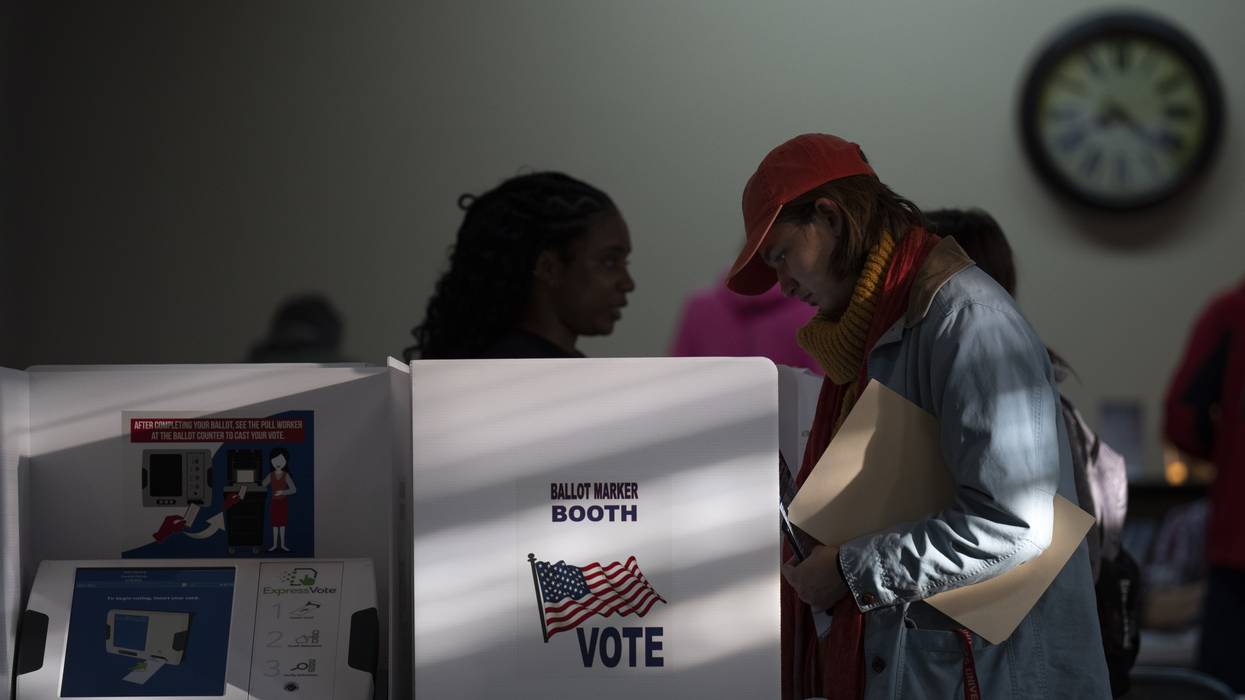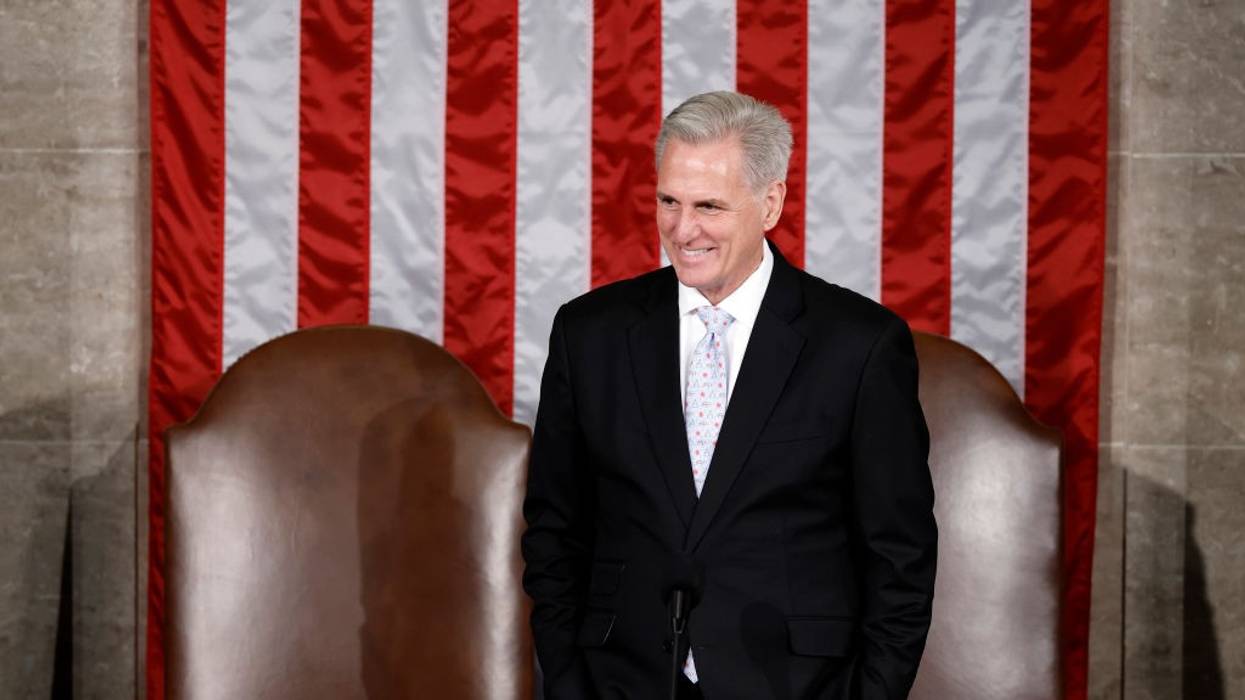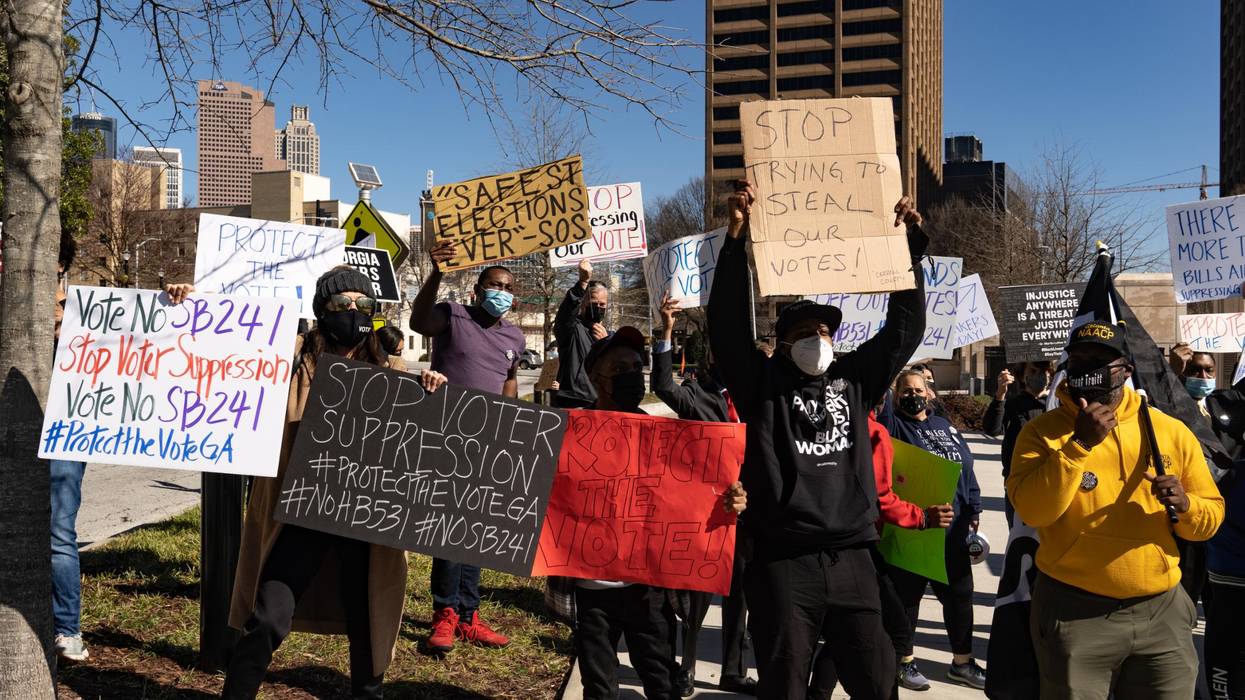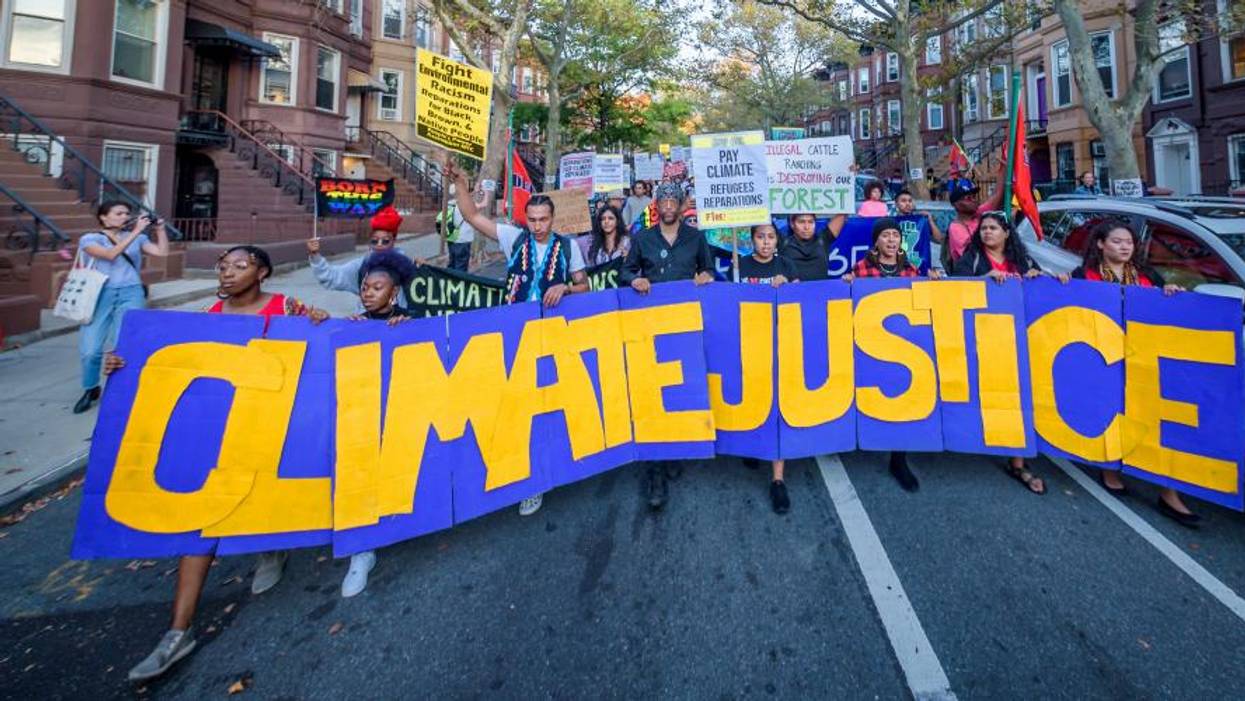A Shocking Voter Purge Crisis Is Underway
An increasingly desperate GOP is doing this because they know their policies are unpopular: racism, pollution, privatizing Medicare, ending Social Security, criminalizing abortion, etc.
If you live in the Blue part of a Red state, Republicans don’t want you to vote. And their latest strategy is their most brute-force method: simply remove you from the voting rolls.
A shocking new study from Demos lays out the dimensions of this voter purge crisis of democracy brought to us by an increasingly desperate GOP.
Republicans are doing this because they know that their policies are unpopular: most Americans aren’t fans of tax cuts for billionaires, more pollution, deregulation, high-priced drugs, privatizing Medicare, ending Social Security, criminalizing abortion and birth control, student debt, hating on Black and queer people, and the GOP’s war on unions and working people.
So, the GOP does everything it can to make voting difficult or even impossible, particularly for people in heavily Democratic neighborhoods (which are usually college towns, big cities, and Black neighborhoods).
When Republicans run elections in such areas (typically Blue cities in Red states), they’ll close or change polling places at the last minute to sow confusion and cause people to give up when they show up at their normal polling place and find it closed.
For example, in this week’s election in Ohio the state changed polling places for mostly Black voters in Cuyahoga and Summit counties just five days before the election, as Newsweek noted in an article titled:
“Ohio GOP Changing Polling Locations Days Before Election Raises Questions”
Ohio voters were outraged, and that outrage spread across X (formerly Twitter) with comments like this:
“The Ohio GOP is playing ‘Your polling place has moved’ with 47,000 voters in the largest African American voting county in Ohio—just five days before the election. Making it harder to vote—in the crucial August 8th special election (deciding if a majority of voters still can amend Ohio's state constitution)—is wrong.”
Another X user noted:
“Ohio Republicans are so damn shady! … This stinks to high heaven. At the last minute, before Ohio’s special election, polling locations were changed in Cuyahoga and Summit counties. More than 47,000 voters are affected by changes to 50 voting precincts.”
The fact that this little trick in Ohio this week got virtually no national press coverage guarantees Red states will be doing more of it in the upcoming 2023 and 2024 elections.
But that’s just the beginning.
Knowing that working-class people are less likely to vote Republican than white upper-class suburbanites, Republicans also engineer polling situations so people paid by the hour will have to wait for hours in line just to vote, losing out on income.
Every year, we’re treated to pictures and videos of hours-long lines to vote in Blue cities in Red states, while lines in white suburbs typically run less than 10 to 15 minutes.
Similarly, many Red states have imposed draconian penalties on people conducting voter registration drives for making even the smallest mistakes, or for failing to “properly register” themselves with the state. This has shut down many voter registration programs, including some from long-term organizations like the League of Women’s Voters.
As The Kansas Reflector newspaper noted, the penalty for even a minor, inadvertent error is now 17 months in the state prison and a $100,000 fine:
“The League of Women Voters of Kansas and other nonprofits are suspending voter registration drives for fear of criminal prosecution under a new state law.”
The League has sued Florida, Tennessee, and Texas for their criminalization of voter registration drives as well.
But purging voters — by the tens of millions every election cycle — is where the GOP finds their best result. As the Demos report notes:
“Between the close of registration for the 2020 general election and the close of registration for the 2022 general election, states reported removing 19,260,000 records from their voter registration rolls. This was equal to 8.5% of the total number of voters who were registered in the United States as of the close of registration for the 2022 general election.”
Additionally, seventeen million voters were purged in the two years leading up to the 2018 election, fully ten percent of America’s voting population, according to the Brennan Center.
Given that the most radical purges took place among Black and youth voters in Republican-controlled Red states, those 8.5 percent and 10 percent “national averages” could well be twice or three times that percentage in the states where these purges are concentrated.
They added, most of the purge activity was taking place in former Confederate Red states that — before five Republicans on the Supreme Court gutted the Voting Rights Act in their 2013 Shelby County decision — had to have purges pre-cleared by the federal government:
“The median purge rate over the 2016–2018 period in jurisdictions previously subject to preclearance was 40 percent higher than the purge rate in jurisdictions that were not covered by Section 5 of the Voting Rights Act.”
More than a quarter of those purged during this period from 2016-2022 were removed from the rolls either because they failed to vote in the previous election or because they failed to return a postcard mailed out by a Republican secretary of state (that is usually designed to look like junk mail).
This is called “caging” and used to be illegal, but Sam Alito broke the tie and wrote the 5-4 decision in their 2018 Husted v A Phillip Randolph Institute when the five Republicans on the Court ruled that Ohio Republican Secretary of State Husted could continue his practice of mailing the postcards into Ohio cities with the largest Black populations.
In his dissent, Justice Stephen Breyer pointed out that only around 4 percent of Americans move out of their county every year. Yet, he wrote:
“The record shows that in 2012 Ohio identified about 1.5 million registered voters—nearly 20% of its 8 million registered voters—as ineligible to remain on the federal voter roll because [Husted said that] they changed their residences.”
The Brennan Center found that just between 2014 and 2016, in the two years leading up to the Hillary/Trump presidential election, over 14 million people were purged from voter rolls, largely in Republican-controlled states. Then-Secretary of State Brian Kemp purged over a million in Georgia alone leading up to his 50,000 vote 2018 election win against Stacey Abrams.
Calling the findings “disturbing,” the Brennan Center noted, “Almost 4 million more names were purged from the rolls between 2014 and 2016 [just after the Supreme Court legalized large-scale no-oversight voter purges in 2013] than between 2006 and 2008. This growth in the number of removed voters represented an increase of 33 percent—far outstripping growth in both total registered voters (18 percent) and total population (6 percent).”
Another strategy that the GOP has rolled out in a big way to suppress the vote in Blue areas of Red states is “strict signature matching.” They primarily use this against voters who’ve succeeded in obtaining vote-by-mail ballots, which are authenticated by comparing the signature on the envelope with the voter’s registration card.
Because signatures change over time and often vary a lot when people are in a hurry, this is low-hanging fruit for the GOP. Last year they started a program to field an “army” of 50,000 “poll watchers,” including interviewing candidates from among white supremacist militia groups, for the 2024 election.
While some of these poll watchers will be on hand to try to intimidate or challenge Black and young voters (a practice that’s legal in most Red states), many will be overseeing the counting of mail-in ballots, which are generally more Democratic than Republican.
All they have to do is claim that, in their opinion, a signature doesn’t match and the ballot goes into the “provisional” pile and won’t be counted until or unless the voter shows up in person at the county elections office. Most people never even know their ballot was challenged and not counted.
Meanwhile, the GOP in Texas is quietly recruiting 10,000 white volunteers “courageous” enough to go into Black and Hispanic polling places and confront people trying to vote.
As Jessica Corbett reported for Common Dreams:
“Common Cause Texas on Thursday shared a leaked video of a Harris County GOP official discussing plans to ‘build an army’ of 10,000 election workers and poll watchers, including some who ‘will have the confidence and courage’ to go into Black and Brown communities to address alleged voter fraud that analyses show does not actually exist.”
Voting in Red states has become difficult, and registering voters is now treacherous since five Republicans on the Supreme Court legalized all these little tricks and strategies to purge or discourage Democratic voters.
If you live in a Blue area of a Red state, get ready: the GOP plans to pull out all the stops for the 2024 election.
Double-check your voter registration every month or two, and be sure to double-check it in the weeks just before the deadline for registration, as Republican Secretaries of State prefer to purge people in this window so by the time people discovered they’re purged it’s too late to re-register.
Forewarned is forearmed. Pass it on to your friends in Red states.



